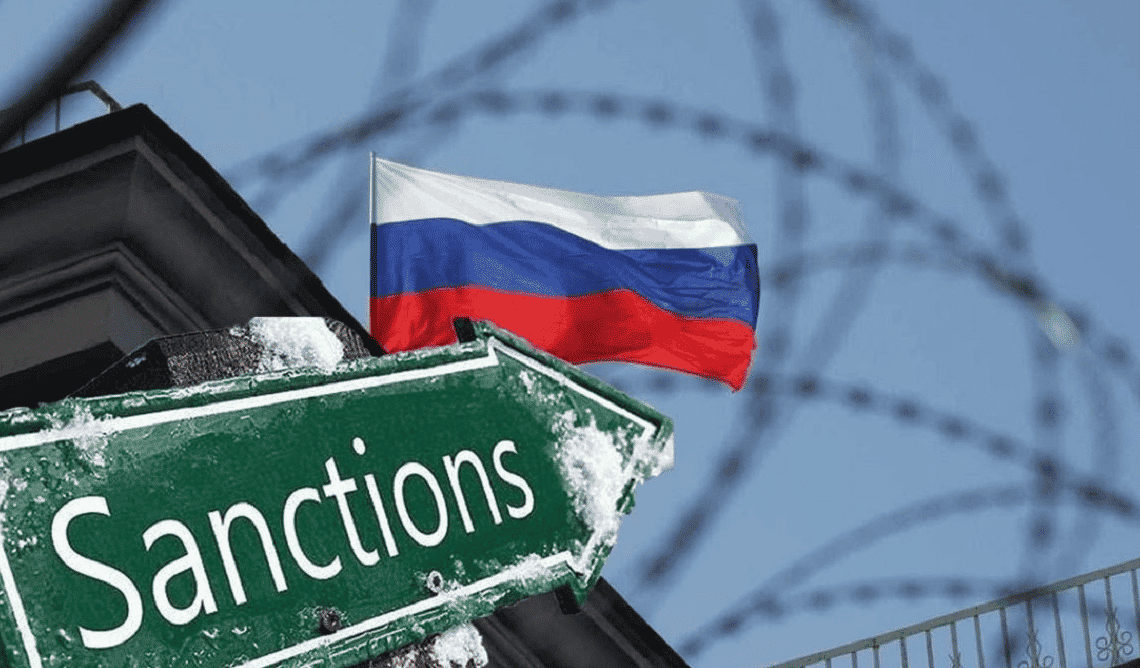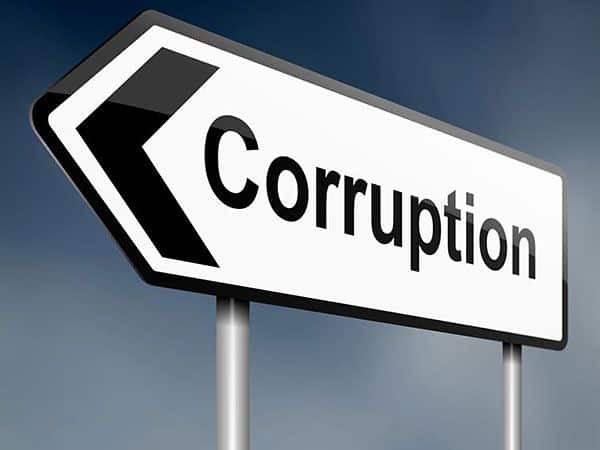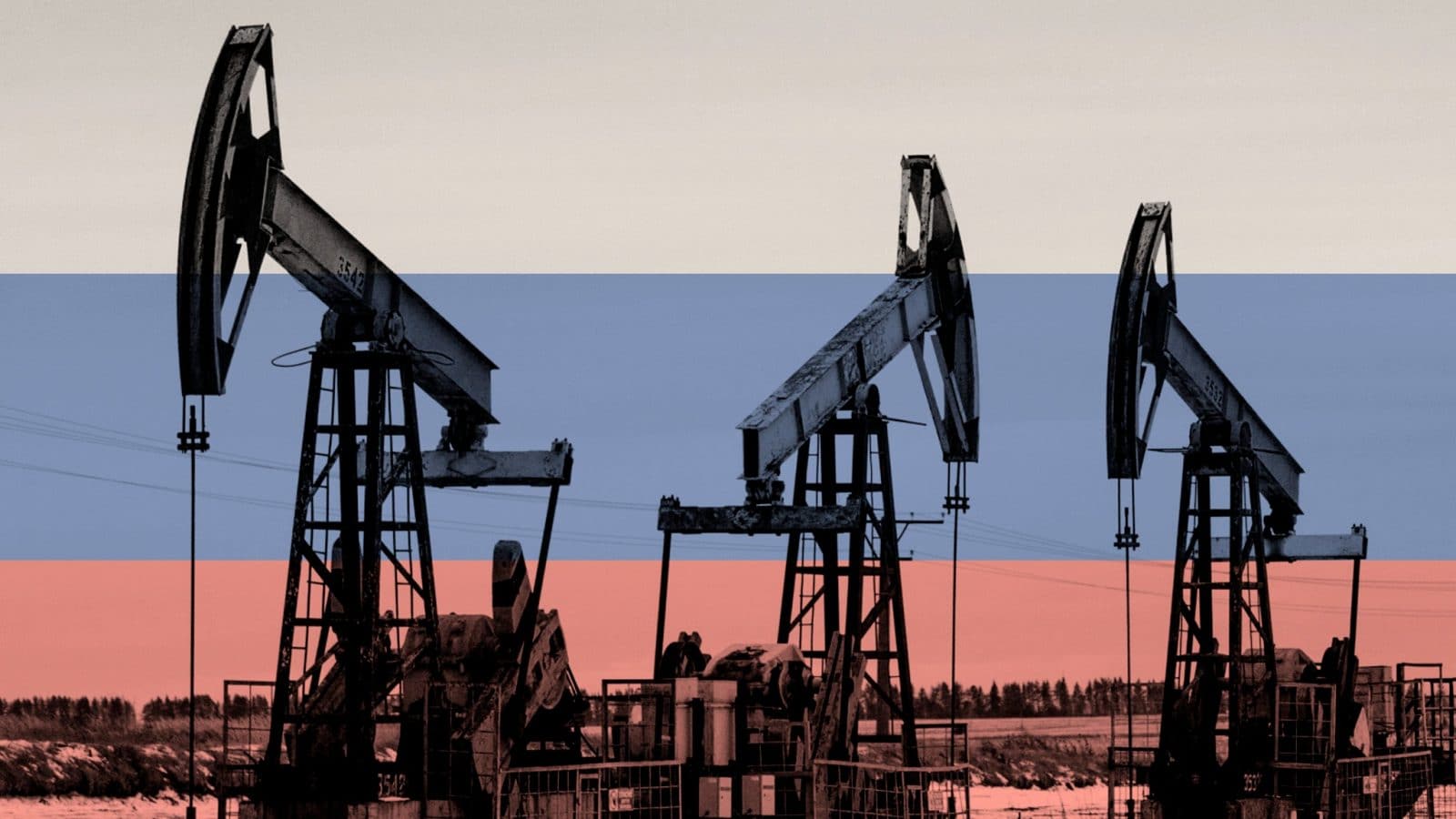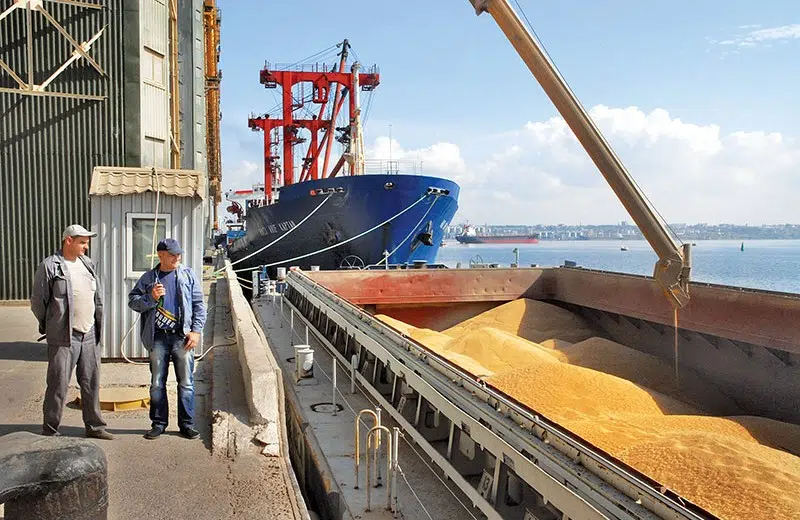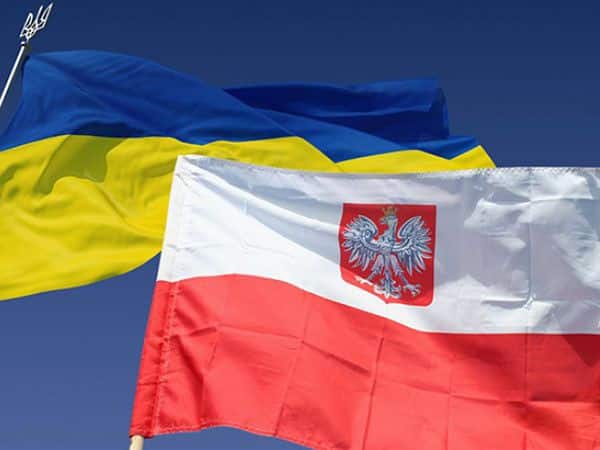Ukraine has not been actively engaged in developing relations with Africa for three decades, but it has decided to change that. How Kyiv plans to compete with Moscow for the favor of African countries is discussed in the material by RBC-Ukraine (Ukrainian media outlet).
Lately, Africa has been appearing more frequently in Ukrainian news. Frankly speaking, in the past, African countries were mostly mentioned in the context of military coups or natural disasters, which formed corresponding public stereotypes. However, with the onset of the full-scale war in Ukraine, the situation has changed.
Now Africa is appearing in Ukrainian news in a completely different aspect. Two tours by Ukraine’s Minister of Foreign Affairs, Dmytro Kuleba, to African countries, the African peace plan, the humanitarian grain initiative, and the potential supply of weapons from Russia to South Africa — these are just a small list of recent events related to Africa.
The Russian invasion has shown that the interdependence between Ukraine and Africa is much greater than it may have seemed. In particular, the blockade of Ukrainian grain exports nearly led to a humanitarian catastrophe in Africa.
Last year, President Volodymyr Zelenskyy announced the reboot of Ukrainian policy towards Africa. Along with that, the first strategy regarding Ukraine’s relations with Africa was approved, and a special representative for this direction was appointed.
In the autumn of last year, Dmytro Kuleba embarked on his first diplomatic tour of African countries, which marked the beginning of a renaissance in relations between Ukraine and Africa. However, the minister had to urgently interrupt his trip and return to Kyiv due to the start of massive Russian attacks on energy facilities. But this May, Kuleba returned to Africa and visited Morocco, Ethiopia, Rwanda, Mozambique, and Nigeria.
“Our problem is that, unfortunately, since 1991, we have been absorbed by our internal issues and our return to the European space after 300 years of being part of the Russian Empire, but we did not give Africa the level of attention it deserves,” Dmytro Kuleba explained in an interview with African media.
The African strategy of Ukraine
There is a myth that nobody is waiting for Ukraine in Africa, but that is not true. Ukraine’s ties with Africa date back to 1925 when the government of the Ukrainian People’s Republic in exile appointed an ambassador to Ethiopia. This marked the first diplomatic connection between Ukraine and the African continent.
Even back then, Ukrainians sought relations with Africa, and Ethiopia was supposed to become a Ukrainian outpost on the continent. However, after gaining independence in 1991, Ukraine openly neglected its ties with Africa.
The Ukrainian government began to think seriously about returning to Africa after Kuleba took over the Foreign Ministry in 2020. The African Strategy was developed then, but with the beginning of the Russian invasion, the priorities of Ukrainian diplomacy changed — it was necessary to negotiate weapons and sanctions against Russia. But last fall, the government began its active implementation.
The African strategy is a document that is not publicly available. However, the spokesperson of the Ministry of Foreign Affairs, Oleg Nikolenko, told RBC-Ukraine that it envisions creating new opportunities for the country, businesses, and citizens in Africa, as well as rebooting relations that have not been developed for the past 30 years.
“We want to activate political dialogue and secure the support of African countries regarding President Zelenskyy’s peace formula. Additionally, Africa holds many prospects for trade activation and cooperation in the economic sphere,” he explained.
As Ukrainian Foreign Minister stated, Ukraine can provide Africa with food, medicine, high-tech equipment, education, diplomatic expertise, and much more. Ukraine is one of the exporters of food to Africa, and as part of the humanitarian initiative Grain from Ukraine, it has already sent hundreds of thousands of tons of Ukrainian grain.
Since African countries have historical ties with Russia, Ukraine relies on their pressure on the Kremlin to unlock the full operation of the “grain corridor” and end the blockade of Ukrainian ports.
“Russia should not use food as a weapon. Unimpeded export of Ukrainian grains will help African countries obtain the agricultural products they need. We urge the African Union to clearly express to Russia the unacceptability of its destructive policy,” Dmytro Kuleba said during a meeting with the head of the African Union.
Interpersonal contacts between Ukraine and Africa have largely developed through students who came from there to Ukraine. Before the war, there were quite a few of them, but they had to leave due to security concerns. However, many of these students, as mentioned by the Ministry of Foreign Affairs, want to return to Ukraine and continue their studies.
Military conflicts are not uncommon in African countries. Therefore, African partners are interested in Ukrainian experience in development during wartime conditions, as highlighted by Nikolenko, which is discussed during every meeting with representatives of Ukraine.
“It is of great interest to them. They are impressed that Ukraine demonstrates high achievements in various fields under challenging circumstances and they want to learn from this experience,” he shared with RBC-Ukraine.
Ukraine can also offer assistance in the military sphere to Africa, as Ukrainian Ambassador to South Africa and Mozambique, Liubov Abravitova, explained in a comment to RBC-Ukraine. According to her, a draft memorandum on military cooperation between Ukraine and Mozambique has been developed. They hope to sign the document in the near future.
“In Mozambique, there is a major problem in the northern part of the country. The Cabo Delgado province, where militants are attempting to establish the so-called Islamic State of Mozambique. Currently, peacekeeping forces are conducting operations there. The experience that Ukraine has gained in countering Russian aggression today could potentially be utilized by Mozambique,” explained Abravitova.
Rwanda is one of the African countries that average Ukrainians know something about. Although it is primarily associated with a horrific genocide, Rwanda has managed to become the most innovative economy among poor countries worldwide in the last three decades after that tragedy.
According to Ukrainian Ambassador to Rwanda, Andrii Pravednyk, this country could become a partner in nuclear energy. Ukraine is ready to train African specialists and potentially participate in the construction of nuclear power plants in the future.
“In addition to construction experts, we have some of the best specialists in the world in ensuring the safe operation of nuclear power plants. Of course, we will not be building power plants tomorrow; it is a lengthy process. However, to begin with, we will work on signing a memorandum between relevant institutions of Ukraine and Rwanda, where we will clearly outline the timelines of our cooperation,” Pravednyk explained in a comment to RBC-Ukraine.
On the other hand, the Ukrainian side is interested in building relationships in Africa based on the formula of “shared interests — mutual respect — shared benefits.” As stated by Maksym Subkh, Ukraine’s Special Representative for the Middle East and Africa, in a comment to RBC-Ukraine, anything that aligns with this model is of interest to Ukraine.
“At the same time, in the political realm, the support of African countries for Ukrainian initiatives at the international organizations, especially the United Nations, is important for Ukraine,” he noted.
Africa’s position on Ukraine
Africa, like the entire so-called Global South, is generally considered to be more friendly towards Russia. However, the positions of African countries do differ among themselves. It is noteworthy that the poorest, dictatorial “outcast countries” tend to be the most supportive of Russia.
In addition to overt “friends of Russia” such as Eritrea and the Central African Republic (which are among the poorest on the continent), as well as Sudan, which is currently under military control and experiencing a civil war, there are many countries in Africa that express support for Ukraine.
Two days before the Russian invasion, speaking at a UN Security Council meeting, Kenyan representative Martin Kimani delivered a strong speech condemning Russia for its decision to recognize the self-proclaimed DPR and LPR. We stand on the brink of a major conflict, the Kenyan representative warned, criticizing the ineffectiveness of the UN Charter and accusing Russia of violating Ukraine’s territorial integrity.
“We must bury the resurgence of dead empires so as to avoid a return to the days of domination and oppression. Today, the principle of multilateralism lies on its deathbed. Today, it has been grossly dishonored — just as it has been violated by other powerful states in the recent past,” emphasized Kimani.
Unfortunately, the position of African countries is changing. For example, a year after the full-scale war in Ukraine, the President of Kenya called Russia a friend on whom he counts in creating a “new architecture in the UN Security Council.” The very same Security Council whose effectiveness was leveled by Russia.
The positions of other African countries regarding Ukraine can be traced through their voting in the United Nations General Assembly. For example, Eritrea, Mali, the Democratic Republic of the Congo, and Nicaragua voted against the resolution condemning Russia’s invasion of Ukraine on March 2, 2022. Abstentions were made by Algeria, Angola, Burundi, the Central African Republic, Congo, Ethiopia, Gabon, Guinea, Mozambique, Namibia, South Africa, Sudan, Togo, Uganda, and Zimbabwe.
As for Mozambique, its position is explained by neutrality. According to Ambassador Abravitova, during official contacts, the Mozambican government assures that the country stands in solidarity with the people of Ukraine, adheres to the UN Charter, but due to constitutional reasons, cannot take sides in any conflict. Therefore, Mozambique consistently abstains during votes on Ukraine.
“The relations between Ukraine and Mozambique have deep roots dating back to the Soviet Union era. Many students and political elites studied in Ukraine. At the same time, they are also friendly towards Russia, calling for peace and expressing the desire not to be put in an uncomfortable position when having to choose sides,” explained the ambassador.
One of Ukraine’s supporters in Africa is the aforementioned Rwanda. The country consistently votes in favor of UN General Assembly resolutions supporting Ukraine, including those related to the Ukrainian peace formula. Moreover, as Pravednyk mentioned, Rwanda is considering the possibility of participating in the implementation of one of its components — food security.
“During his meeting with Minister Dmytro Kuleba, the President of Rwanda stated that for his country, the issues of justice and territorial integrity are not empty words, but are actually issues of existential values. Therefore, for Rwanda, supporting Ukraine is an absolutely natural behavior,” said Ukrainian Ambassador to Rwanda, Andrii Pravednyk.
The Republic of South Africa has openly taken a pro-Russian position, which is not surprising given its joint participation with Russia in the BRICS alliance and longstanding friendly relations with Moscow.
South Africa not only failed to condemn Russia’s invasion of Ukraine during the UN General Assembly session but also conducted joint naval exercises with the Russian ship Admiral Gorshkov afterwards, on which a propagandistic symbol “Z” was displayed.
See also: How Russia is attacking the European Union with disinformation
According to Abravitova, the South African government considers Russia’s war against Ukraine as a proxy war stimulated by the United States and NATO. The country itself claims to adhere to a policy of non-alignment, which is a form of neutrality, although, in practice, South Africa demonstrates an openly pro-Russian position.
Indeed, the South African government faced embarrassment by refusing to arrest Russian dictator Vladimir Putin upon the request of the International Criminal Court if he attends the BRICS summit in August this year. There were even loud statements about withdrawing from the Rome Statute, which were later hastily refuted. Currently, South Africa plans to grant diplomatic immunity to Putin, although it did offer him the option to participate in the summit remotely.
Recently, Pretoria also faced accusations from the US ambassador of clandestine arms supplies from Russia. The South African government immediately denied assistance from Russia, but President Cyril Ramaphosa nevertheless instructed the government to conduct an investigation.
Furthermore, Ramaphosa announced his own peace initiative regarding Russia’s war against Ukraine. Egypt, Senegal, Zambia, Congo, and Uganda have also joined the initiative, which involves negotiations between Kyiv and Moscow until the withdrawal of Russian troops from the seized territories. President Volodymyr Zelenskyy also offered South Africa to join the Ukrainian peace formula during a phone conversation with Ramaphosa.
For several decades, the African National Congress (ANC) has been ruling South Africa, and it has had connections with Moscow since the days of the USSR. Communists assisted the ANC under the leadership of Nelson Mandela in establishing a military wing that fought against the apartheid regime. Representatives of the ANC received training and education in the Soviet Union.
After the dismantling of apartheid in 1994, the ANC became the ruling party in South Africa and has remained in power ever since. During this time, Russia, while Ukraine was not sufficiently present in Africa, managed to become a strategic partner of South Africa.
The battle for Africa
Building trust and fostering friendly relations with African countries is aided by the history of the continent, which has endured centuries of European colonialism. Therefore, the geopolitical position of some African countries is rooted in their resentment towards the so-called global West, which is seen as an adversary of both Africa and Russia. In essence, Moscow is attempting to appropriate the legacy of Soviet assistance to Africa’s national liberation movements.
However, behind the “Russian friendship” always lies self-interest. Russians have been establishing their presence in the African continent for decades, primarily driven by economic gains. For instance, Russia is plundering the Central African Republic, which possesses deposits of gold, diamonds, and uranium, by providing military and financial support to the incumbent regime in exchange.
Another African country that serves as a Russian “gold mine” is Sudan. Last year, journalists from CNN revealed that mercenaries from the Wagner Group illegally extract Sudanese gold, which then replenishes Russia’s reserves to mitigate the consequences of Western sanctions.
Such partnerships often lead to negative consequences for African countries. For example, earlier this year, there was an attempted coup in Sudan orchestrated by the Rapid Support Forces — militants who assist the Wagner Group in gold mining. The ongoing clashes between Sudanese government forces and militants continue. Additionally, the Wagner Group is believed to be involved in mass killings of civilians in the Central African Republic.
“It is very difficult to consider Russians as friends of African countries because their actions undermine international legality and, in practice, they pursue a neo-colonial policy, attempting to revise internationally recognized borders, which is particularly dangerous for African nations,” emphasized Maksym Subkh to RBC-Ukraine.
Concern about the spread of Russian influence exists even among African countries themselves. Despite Russia’s self-created myth as a “fighter for African freedom,” African partners, as explained by the spokesperson of the Ministry of Foreign Affairs, privately express their concerns and perceive it as a threat to their countries. This is particularly due to the activities of the aforementioned Wagner Group, which supports coups and engages in resource theft.
See also: Without remorse and regret: an interview with captives of the Wagner Group
“Another threat is Russian propaganda. Russia utilizes information technologies to destabilize the situation in other countries. African partners have told us that they want to learn from Ukrainian experience in countering propaganda, combating fake news, and building strategic communications,” explained Oleg Nikolienko.
Ukraine has its own trump card in its struggle for the favor of the African continent — it is at war with neocolonialism, which is now embodied by Russia. This is a point that Ukraine is constantly trying to make to its African partners, and it is well understood by them.
Victory in the war with Russia, according to Subkh, will help Ukraine win the favor of African countries, as they went through a similar path of armed resistance to the colonial yoke several decades ago.
However, even today, while the war continues, Ukraine strives to develop diplomatic ties with Africa. After his first tour of African countries last fall, Ukraine’s Foreign Minister Dmytro Kuleba announced plans to train African diplomats. According to the Ministry of Foreign Affairs, as of now, the Ukrainian side has conducted two courses in which 18 countries and over 200 diplomats participated.
Furthermore, as Oleg Nikolienko revealed, Ukraine plans to open 10 more embassies in Africa. Agreements have already been reached with Ghana, Rwanda, and Mozambique, and work is ongoing regarding others. The Ukrainian government also aims to hold the Ukraine-Africa Summit, although details have not yet been disclosed.
Ukraine’s activity in Africa is causing concern in Russia. On the eve of Kuleba’s tour, Russian ambassadors visited African capitals in an attempt to prevent meetings. Fearing to lose their influence, Russians also sent their Foreign Minister, Lavrov, in the footsteps of the Ukrainian minister. However, as Oleg Nikolenko told RBC-Ukraine, Ukraine is one step ahead.
Originally posted by Dmytro Levytskyy on RBC-Ukraine. Translated and edited by the UaPosition – Ukrainian news and analytics website
See also: United helplessness: Why international organizations do not work

